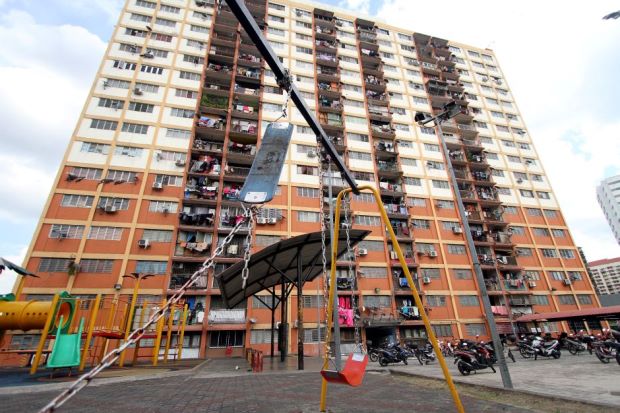PETALING JAYA: Children living in low-cost housing or People's Housing Projects (PPRs) in Kuala Lumpur (KL) face high rates of poverty and malnutrition compared with the national average, a Unicef study revealed.
Titled "Children without: A study of urban child poverty and deprivation in low-cost flats in Kuala Lumpur", the study also noted that poverty impairs the education opportunities of children living in low-cost flats.
This makes them more vulnerable to malnourishment, potentially damaging their cognitive development, it added.
While the national poverty rate is less than 1%, the report indicated that 99.7% of children in low-cost flats live in relative poverty and 7% in absolute poverty.
The study also found that 15% of children below the age of five are underweight while 22% of children are stunted, almost two times higher compared with the KL average.
About 23% of the children are either overweight or obese, nearly six times higher compared with the KL average of 4%.
It also found that while almost all of the children aged seven to 17 are in school, only 50% of five- to six-year-olds attend pre-school compared with the national enrolment of 92% in 2015.
About one in three households surveyed had no reading materials for children aged below 18, while about four in 10 households have no toys for children aged below five.
Produced by DM Analytics, the study carried out in 2017 surveyed close to 1,000 households with children in PPR houses in Kuala Lumpur and Petaling Jaya.
“The reality is poor children are among us but they often remain unseen,” she added.
To support the 2050 National Transformation (TN50) and Agenda 2030, the report recommends several government policies and interventions to alleviate child poverty in urban areas.
Among the recommendations are revisiting poverty indicators, namely the Poverty Line Income (PLI), and using multidimensional indicators that include the nutritional status of children and relative income poverty.
It also recommends providing universal child care grants and promoting exclusive breastfeeding for at least six months.
In making those recommendations, the study said policies that facilitate access to nutritious food, such as taxes on sugar-sweetened beverages, and regulation of food sold in and around schools, are also needed.
“One of the optimal ways to ensure that every child in Malaysia has an equal start in life is by providing a comprehensive social protection floor,” said Clark-Hattingh.
“This will facilitate equal access to basic services such as health, education and nutrition for the most marginalised families, thus mitigating the effects of deprivation on children, and help break the cycle of poverty,” she added.












































